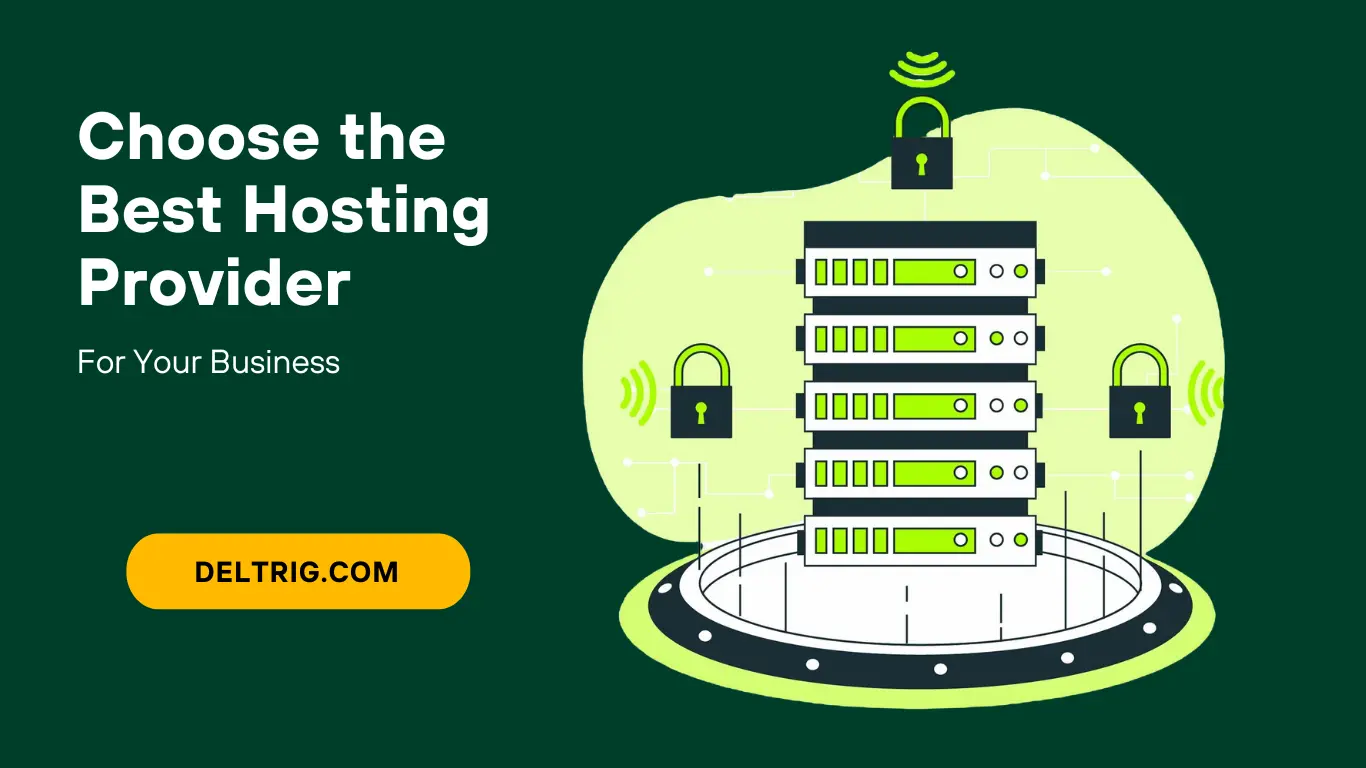How to Choose the Best Hosting Provider for Your Business

Whether you’re running an e-commerce store, a blog, or a service website, your site needs a reliable hosting provider to ensure it performs well and remains accessible to your customers. But with so many hosting companies out there, how do you choose the best one for your business? In this guide, we’ll break down the key factors to consider when selecting a hosting provider, helping you make an informed decision that suits your needs.
1. Understand Your Business Needs
Before diving into the various hosting options, it’s essential to understand what your business needs from a hosting provider. Consider the following questions:
What type of website are you building? Is it an e-commerce store, a blog, or a corporate site?
How much traffic do you expect? This will help determine the resources you need.
What features do you require? Do you need email hosting, SSL certificates, or backup services?
By understanding your requirements, you can narrow down your options and focus on providers that offer the features you need.
2. Types of Hosting Services
There are several types of hosting services available. Let’s explore the most common ones:
Shared Hosting
Shared hosting is when multiple websites share the same server resources. It’s an affordable option for small businesses and blogs with low traffic. However, shared hosting can have performance issues if other websites on the server consume too many resources.
Pros:
- Affordable
- Easy to set up
Cons:
- Limited resources
- Potential for slower performance
VPS Hosting (Virtual Private Server)
VPS hosting provides a virtualized server environment, offering more control and resources compared to shared hosting. It’s suitable for businesses that expect moderate traffic and need more customization options.
Pros:
- More control over the server
- Better performance
Cons:
- More expensive than shared hosting
- Requires technical knowledge
Dedicated Hosting
With dedicated hosting, you get an entire server for your website. It’s a premium option for large businesses and websites with high traffic.
Pros:
- Full control over the server
- High performance
Cons:
- Expensive
- Requires server management skills
Cloud Hosting
Cloud hosting uses a network of servers to ensure your website stays online even if one server fails. It’s a scalable option, making it ideal for growing businesses.
Pros:
- Full control over the server
- High performance
Cons:
- Expensive
- Requires server management skills
Managed WordPress Hosting
If your website is built on WordPress, managed WordPress hosting can be a great option. These hosting providers handle all the technical aspects, including updates, security, and backups.
Pros:
- Optimized for WordPress
- Hassle-free management
Cons:
- Limited to WordPress websites
- Higher cost
3. Key Features to Look for in a Hosting Provider
When choosing a hosting provider, there are several key features you should look for:
1. Performance and Uptime
Your website’s performance and uptime are crucial. Look for a hosting provider that offers at least 99.9% uptime and fast loading speeds to ensure your site remains accessible and provides a good user experience.
2. Security
Security is essential to protect your website from cyber threats. Look for hosting providers that offer SSL certificates, regular backups, and security monitoring.
3. Customer Support
Reliable customer support is vital. Choose a provider that offers 24/7 support through multiple channels such as live chat, email, and phone.
4. Scalability
As your business grows, your hosting needs will change. Choose a hosting provider that offers scalable plans, allowing you to upgrade your resources as needed.
5. Pricing
While pricing is a significant factor, don’t make your decision based solely on cost. Consider the value you’re getting for your money, including the features and support provided.
6. Backup and Recovery Options
A good hosting provider should offer regular backups and easy recovery options in case something goes wrong with your website.
4. Tips for Choosing the Right Hosting Provider
Here are some additional tips to help you choose the best hosting provider for your business:
1. Read Reviews
Check online reviews from other users to get an idea of the hosting provider’s performance and customer service.
2. Check for Money-Back Guarantee
Look for hosting providers that offer a money-back guarantee. This allows you to test their services without risk.
3. Consider Location of Servers
Choose a hosting provider with servers located close to your target audience. This can improve your website’s loading speed.
4. Look for Extras
Some hosting providers offer additional features such as free domain registration, website builders, or marketing credits.
5. Common Mistakes to Avoid When Choosing a Hosting Provider
1. Choosing Based on Price Alone
While cost is essential, it shouldn’t be the only factor. Make sure the hosting provider meets your business needs.
2. Ignoring Customer Support
Good customer support is crucial, especially if you encounter technical issues. Choose a provider with responsive and helpful support.
3. Not Considering Scalability
Your business will grow, and your hosting needs will change. Make sure your hosting provider can scale with you.
4. Overlooking Security Features
Security is essential to protect your website and customer data. Ensure your hosting provider offers robust security measures.
6. Conclusion
Choosing the best hosting provider for your business is a crucial decision that can impact your website’s performance, security, and growth. By understanding your needs, exploring different hosting options, and considering key features like performance, security, and customer support, you can find a hosting provider that fits your business perfectly. Take your time to research and make an informed decision—your website’s success depends on it!


